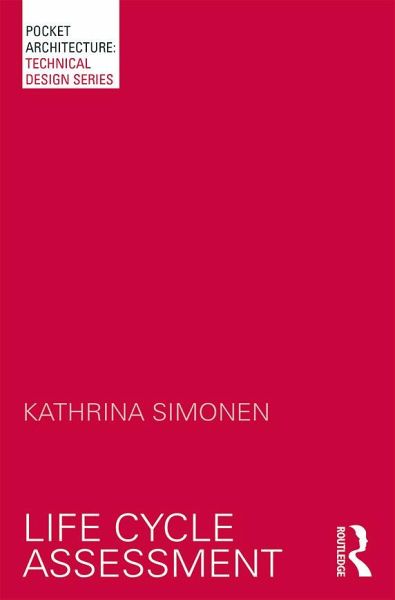
Life Cycle Assessment
Versandkostenfrei!
Versandfertig in über 4 Wochen
45,99 €
inkl. MwSt.
Weitere Ausgaben:

PAYBACK Punkte
23 °P sammeln!
Life Cycle Assessment addresses the dynamic and dialectic of building and ecology, presenting the key theories and techniques surrounding life cycle analysis for holistic ecological building.













